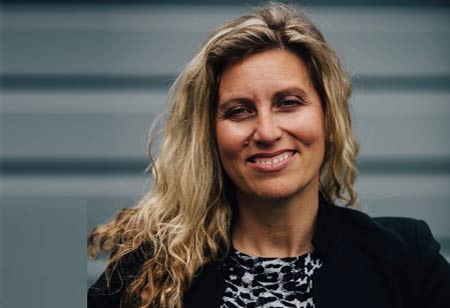

Thank you for Subscribing to Agri Business Review Weekly Brief

Paloma Lopez serves as the Chief Sustainability and Communications Officer for Bel U.S, a 160-yr-old family-owned snacking leader, renowned for its iconic brands like Mini Babybel, GoGo SqueeZ and the Laughing Cow, as well as its innovative fruit, veggie and dairy portion-sized snacks. Paloma is a recognized Global Food Sustainability Leader, Aspen Institute Fellow, and advocate for sustainable food systems. With over 20 years of global experience in the food and CPG industry, she has led initiatives and strategies that create economic, social, and environmental value at Fortune 500 companies and startups. Paloma holds M.S. degrees in Sustainability Leadership and International Business.
In a nation overflowing with food options, our plates are often missing the basics. In fact, research indicates that while 90% of Americans reach for snacks up to three times per day, 80% aren’t getting enough fruit, veggies, and dairy in their diets. With the American fixation on snacking and an increased national focus on providing food options that meet people’s dietary needs, now is the time to close the nutrition gap while contributing to a more sustainable future of food for all.
The gap between what we snack on and what we need in our diets is where opportunity and responsibility collide. Snacking can be more than just convenient; it can be driven by purpose and be filled with joy. By rethinking how and where snacks are sourced, and the joy and nutrition they can deliver to people, we can shift snacking from a missed opportunity to a meaningful solution that is rooted in human health, joy, and sustainability.
At Bel, we call this movement Purpose*Full Snacking. This concept is rooted in a simple but powerful belief: what’s good for people should also be good for the planet. In the industry of food, we have the opportunity to develop sustainable innovations throughout the value chain process, while also strengthening the communities that grow and make our foods possible.
By reimagining sustainability in the snacking process from start to finish, we can build a future where regenerative food systems and stronger communities flourish.
Agricultural responsibility begins where food begins: in the fields and in the farming communities that nurture them. One way that we work to prioritize sustainable practices at Bel is by joining programs like Truterra, a partner program that brings agronomic insights, tools, and expertise to help farmers protect and restore their land with implementing regenerative practices that rebuild soil organic matter, improve water retention, and track greenhouse gas emissions. This also means investing in practices that support animal welfare.
Beyond the farm, it is essential to embed sustainability into the value chain by identifying opportunities to reduce waste, improve packaging sustainability, and minimize use of finite resources such as water and energy.
This process, inclusive of farmers, the value chain, and the consumer, makes one thing clear: sustainability is not something that we achieve in isolation. It requires collaboration. Stakeholders across the value chain must share a willingness to align business goals with ecological health. For this reason, transparency and accountability are key.
For the collective industry to become more sustainable, we must work together to track and report our environmental progress, allowing us to learn from partners across the industry and continuously strive to do better together.
By reimagining sustainability in the snacking process from start to finish, we can build a future where regenerative food systems and stronger communities flourish. When we prioritize the health of our ecosystems, support the livelihoods of farmers, and design products with purpose, we consistently move toward a more resilient and equitable food system, while simultaneously helping consumers make more intentional and purposeful snacking choices.
Together, we can create a world where every snack not only helps close the nutrition gap but also forges a sustainable future.
That’s something we can all feel good about, one snack at a time.